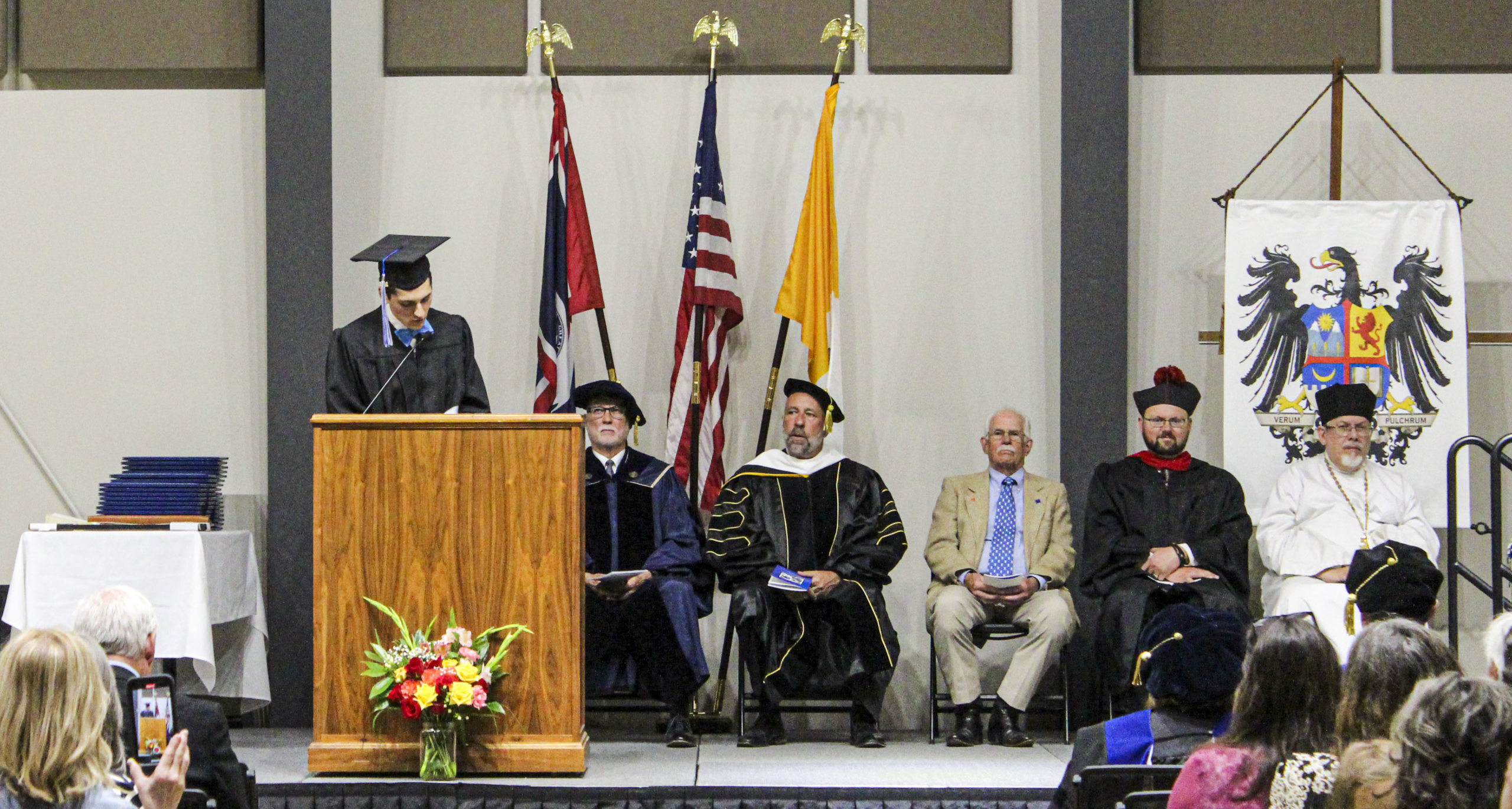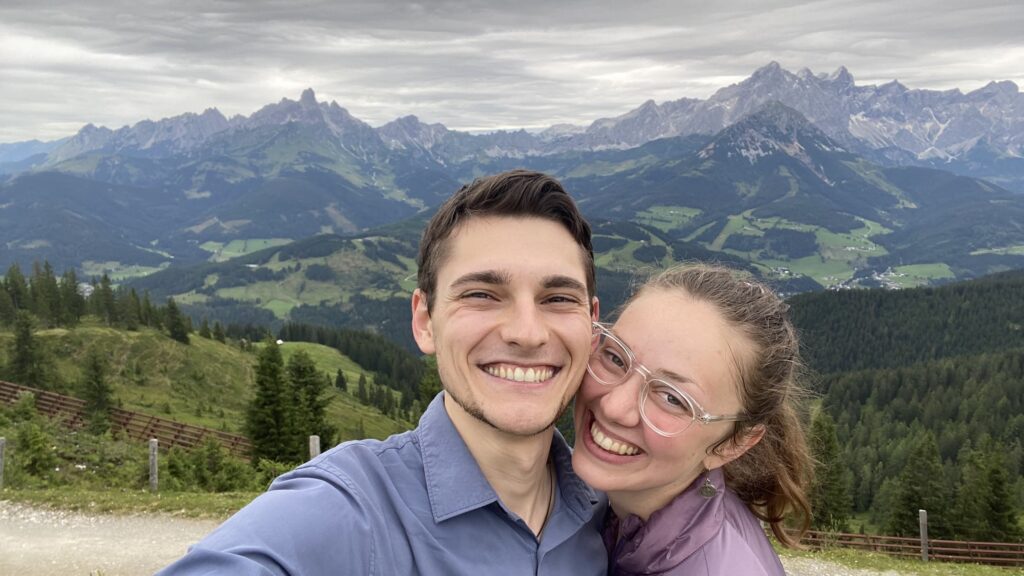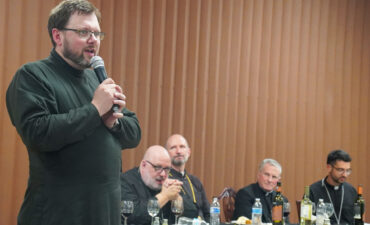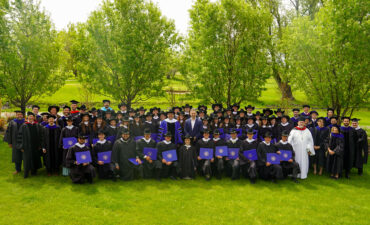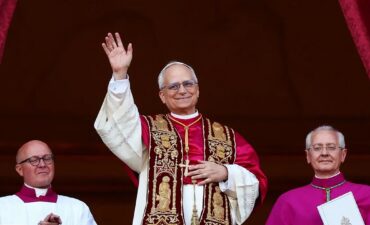“Free Man and the Civil Order:” A Conversation with Anthony Jones (‘21)
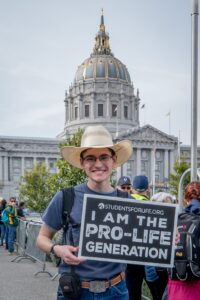 Since high school, Anthony Jones has felt “obliged to participate” in the “battle raging over truth in the public square.” His “political aspirations were kindled during high school” when he “founded a pro-life group on campus amidst opposition” at “a public school system very hostile to the teachings of the Church.” Anthony had to continually defend his beliefs against secular classmates and teachers, which resulted in a robust apologetic sense, and activism such as speaking on EWTN while attending the DC March for Life. But this made him “eager for a change,” for an educational experience filled with “leisure,” one which would be a “challenge, but not a minefield.”
Since high school, Anthony Jones has felt “obliged to participate” in the “battle raging over truth in the public square.” His “political aspirations were kindled during high school” when he “founded a pro-life group on campus amidst opposition” at “a public school system very hostile to the teachings of the Church.” Anthony had to continually defend his beliefs against secular classmates and teachers, which resulted in a robust apologetic sense, and activism such as speaking on EWTN while attending the DC March for Life. But this made him “eager for a change,” for an educational experience filled with “leisure,” one which would be a “challenge, but not a minefield.”
Wyoming Catholic College “stood out as the ideal remedy, offering a holistic community of learning, worship, and friendship.” It gave Anthony the “opportunity to study subjects woefully neglected in my education until that point: theology, philosophy, Latin, etc.”
Now pursuing a PhD in political science at Baylor University in Waco, Texas, Anthony has had extensive experience in the political sphere and study of its principles. During his college summers, Anthony interned at various policy think tanks, such as the Family Research Council, the Heritage Foundation, and the Texas Public Policy Foundation, where he continues to work on education policy. “I conducted research and published papers in an effort to educate lawmakers and the public on education and workforce development policy. I then came to Baylor to earn a masters degree in public policy and administration. Since beginning graduate studies, I have continued to work on education policy in Texas, which enables me to apply what I am learning in real time and further perfect the political order that surrounds me.”
One of Anthony’s favorite experiences at the College was its tight-knit community. “Rather than being built on a superficial or transient foundation like so many relationships are today, the common commitment of WCC students, faculty, and staff to sanctification binds them together in the pursuit of an eternal goal. This goal is realized, albeit imperfectly, through everyday activities, from attending class, to mountain biking, to singing in the college choir.” One example of this is the “Teton Wilderness Edition” of O God Beyond All Praising, on Anthony’s 21-day backpacking trip. An inspirational character in his class from the first, Anthony’s class chose him as their class speaker.
The community dedicated to the pursuit of an “eternal goal” culminated for Anthony in “sublime encounters with Christ in the liturgy.” He notes that while being immensely grateful for the knowledge and habits he acquired at WCC, what shaped him most “were the regular encounters with the Church’s liturgical worship, both Roman and Byzantine.” For Anthony, the “beauty of traditional worship reinforced the education” he received in the classroom, and he found that it enabled all his “work to culminate in a prayer of praise.”
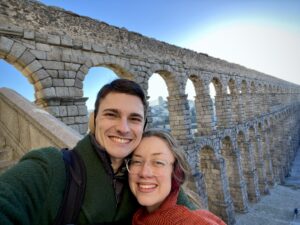 Another gift of the WCC community for Anthony was his now wife, Olivia, in the class below him. They are expecting their first child at the time of writing. At Wyoming Catholic, Anthony and Olivia could embark on a deep intellectual and spiritual friendship—which included speaking Latin together!
Another gift of the WCC community for Anthony was his now wife, Olivia, in the class below him. They are expecting their first child at the time of writing. At Wyoming Catholic, Anthony and Olivia could embark on a deep intellectual and spiritual friendship—which included speaking Latin together!
As students, they often prayed the Divine Office together, a practice they continue in their marriage: “I now strive to order my entire life around the liturgy,” he says, “which means that Christ’s gift of Himself in the sacred rites of the Church motivates and elevates every political or personal aspiration. The formative years at WCC helped me access and appreciate that gift, as I pray they will for all students of the college.”
The intellectual education WCC offered has a great impact on his current work. “Without a doubt, the WCC education refined my capacity to learn well, both inside and outside the classroom,” Anthony tells me. Experience in the think tank world required thoughtful “attention to a variety of stakeholders,” and the need to “address their concerns in a policy proposal.” Like his time at WCC, graduate school requires him “to patiently wrestle with the claims of Western civilization’s most impactful thinkers.” Anthony finds himself equipped to meet these demands “thanks to the countless close readings, seminar discussions, and outdoor leadership scenarios I encountered at WCC.”
Another important aspect for Anthony is the background to Western thought that the “WCC liberal arts curriculum gave” him “thorough familiarity with the foundations and outlines of Western thought.” This “renders new challenges more comprehensible,” and makes his “advocacy for parental rights before the Texas legislature not isolated endeavors” because of his “advanced study of Rousseau’s theory of social dependency,” for example. “Instead, they are both part of an effort to understand truth and ensure that the world—including myself—reflects it more perfectly. This task is exhilarating and possible because WCC opened my eyes to its existence.”
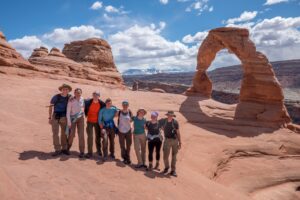 “Particularly in the political world, employers actively seek to hire people who are adept at overcoming challenges, careful thinkers, articulate communicators, and successful collaborators,” says Anthony. “Thankfully, these qualities are all associated with rigorous liberal arts degrees, so my possession of one automatically made me more attractive to employers and graduate school admissions teams.” However, experience in the political sphere is also very important, which is why Anthony dedicated time to activism and internships during his undergraduate years: “thankfully, the WCC faculty and staff were very receptive to my ambitions and helped supplement my liberal arts education with enriching political experiences in Lander, Washington, D.C., and beyond.” Anthony thinks the outdoor program also helped him to develop the skill of calmly leading others toward a common goal, and “similar challenges (albeit less physically adventurous) await the policy wonk on the front lines of political action.”
“Particularly in the political world, employers actively seek to hire people who are adept at overcoming challenges, careful thinkers, articulate communicators, and successful collaborators,” says Anthony. “Thankfully, these qualities are all associated with rigorous liberal arts degrees, so my possession of one automatically made me more attractive to employers and graduate school admissions teams.” However, experience in the political sphere is also very important, which is why Anthony dedicated time to activism and internships during his undergraduate years: “thankfully, the WCC faculty and staff were very receptive to my ambitions and helped supplement my liberal arts education with enriching political experiences in Lander, Washington, D.C., and beyond.” Anthony thinks the outdoor program also helped him to develop the skill of calmly leading others toward a common goal, and “similar challenges (albeit less physically adventurous) await the policy wonk on the front lines of political action.”
While “so much about modern culture tries to displace my notion of the common good, both in politics and the works of misguided philosophers,” Anthony found that the WCC education “rooted” his “priorities in truth, on both intellectual and experiential levels. Thus grounded in reality, I am better able to wade into the murky waters of this world without fearing for my soul.” Instead, he can “humbly face challenges with a view to learning from them and submitting them to the reign of Christ, who, though my professors and peers, trained me to ask good questions, persevere through difficulties, and love others as myself.”
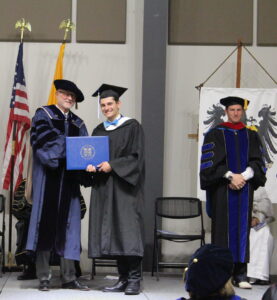 Anthony envisions the WCC education as immensely beneficial to “any serious Catholic interested in pursuing political work.” He comments that “whether a person intends to enter into graduate studies, governmental administration, or the policy world, the foundation laid by studying at the feet of the greatest minds in Western civilization is irreplaceable.” Political work requires “sharp thinking, careful discernment, and practical wisdom,” Anthony says. “WCC is the only college I know of that explicitly combines outdoor leadership experience with academic instruction,” which promotes such qualities “in abundance.”
Anthony envisions the WCC education as immensely beneficial to “any serious Catholic interested in pursuing political work.” He comments that “whether a person intends to enter into graduate studies, governmental administration, or the policy world, the foundation laid by studying at the feet of the greatest minds in Western civilization is irreplaceable.” Political work requires “sharp thinking, careful discernment, and practical wisdom,” Anthony says. “WCC is the only college I know of that explicitly combines outdoor leadership experience with academic instruction,” which promotes such qualities “in abundance.”
Lastly, the location of Wyoming Catholic was also important: “the town of Lander—and Wyoming in general—serves as an ideal laboratory of democracy, insofar as there are many ways to be politically active,” Anthony said. Local opportunities such as attending city council or party central committee meetings gives students the opportunity to lobby “for changes by contacting local representatives or testifying before the state legislature.” Initiatives like the Lander March for Life “also allow students to reach hearts and minds in the local community, sharing truths from the classroom with neighbors who need it most.”
Anthony concludes that his “political work is a natural fruition of the college’s mission to produce ‘the truly free man who, because he possesses the intellectual, moral, and theological virtues, can direct himself—with God’s grace—to his proper end’”, as the WCC Philosophical Vision Statement puts it. “The inquisitive habits I have brought into graduate school further my quest toward understanding reality, while policy work enables me to bring others into that same freedom by perfecting the civil order,” Anthony says. “My proper end is still a long way off—please God, may it come—but in the meantime, I am honored to help realize his Kingdom in my community.”
